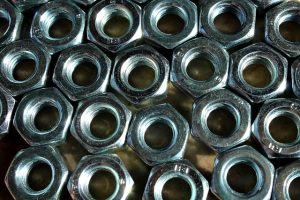
Nuts are commonly used to secure parts together. They are threaded fasteners that connect to a mating fastener, such as a bolt. To secure two or more parts together, you can drive a bolt through the parts, followed by twisting a nut onto the end of the bolt. While you’re probably familiar with their purpose, though, there are several myths about nuts you should ignore.
#1) All Nuts Are Hexagonal
Many people assume that all nuts are hexagonal. While hexagonal nuts are undoubtedly common, you can find these fasteners in other shapes, such as square. In the past, most nuts were square shaped. They were easier to manufacture than alternative shapes. Square nuts have since been replaced by hexagonal nuts, but you can still find them available for sale.
#2) Only Used to Hold Parts Together
While most nuts are, in fact, designed to hold parts together, some of them support other applications. There are jam nuts, for instance, that are used to press against another nut. Jam nuts are designed to prevent standard nuts from loosening by jamming against them. There are also J-nuts and U-nuts that are designed to clip onto the edges of sheet metal.
#3) Require a Wrench to Tighten
You can tighten most nuts either with or without a wrench. Whether they are hexagonal or square, most nuts have uniform sides. To tighten a nut, you can grab the sides and turn it. Turning the nut to the right will tighten it, whereas turning it to the left will loosen it.
#4) Smaller Nuts Are Easier to Tighten
Another common myth is that smaller nuts are easier to tighten, as well as loosen, than larger nuts. In most cases, the opposite is true. Larger nuts have longer sides. A large hexagonal nut will have six long sides. And with these long sides, you’ll have more surface area to grip it. The end result is greater torque, allowing for easier tightening and loosening.
#5) Made Entirely of Metal
Most nuts are made entirely of metal, such as stainless steel, but this doesn’t apply to all of them. Some nuts are made of both metal and an elastic material. Known as nylon insert nuts, they feature a nylon collar. The nylon collar is designed to increase friction with the screw thread.
#6) All Nuts Are Temporary Fasteners
Because you can typically remove them, most nuts fall under the category of temporary fasteners. But there are some nuts that are designed for permanent use. Weld-on nuts, for instance, require welding. You can weld them to other objects. Once welded, you won’t be able to easily remove them.
